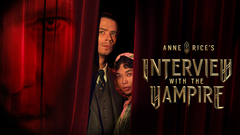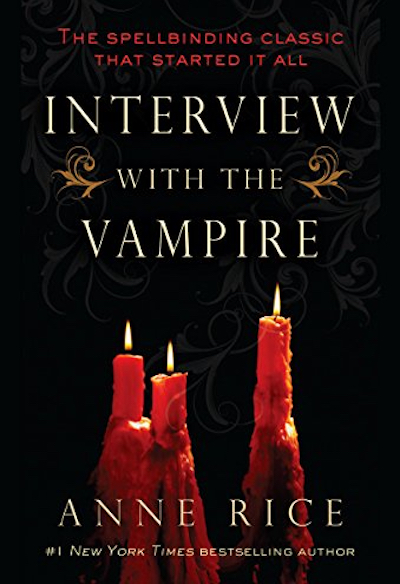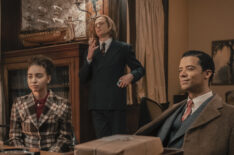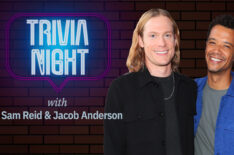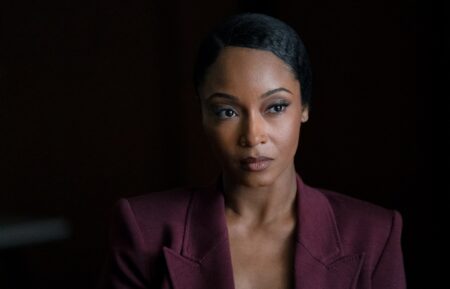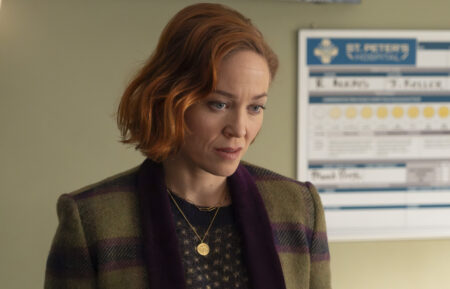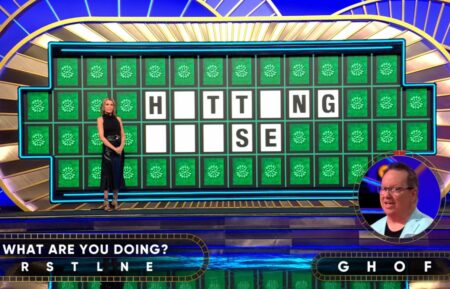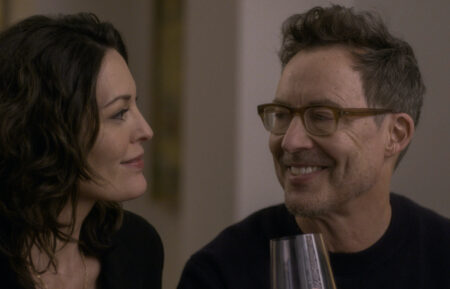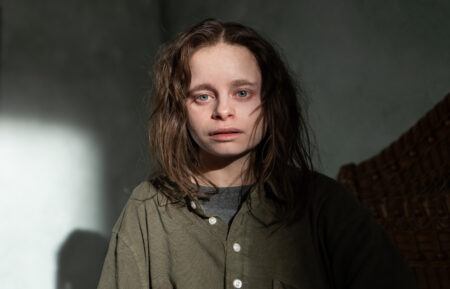‘Interview With the Vampire’ Finale Ending Explained by Creator Rolin Jones
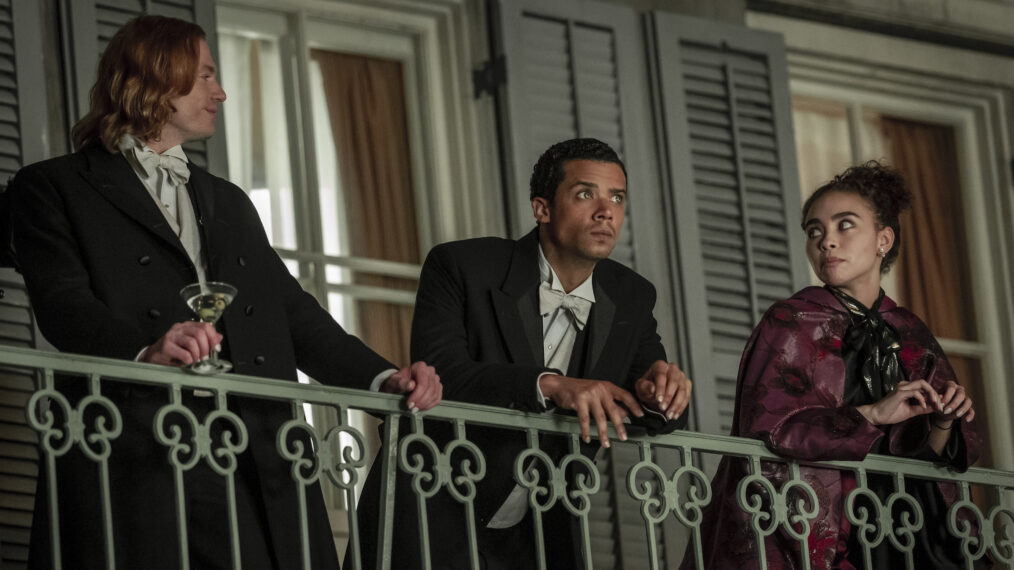
Spoiler Alert
[Warning: The following contains MAJOR spoilers for Interview With the Vampire Season 1 Episode 7, “The Thing Lay Still.”]
The Interview With the Vampire Season 1 finale started with a bloodbath and ended with two thrilling twists. Book readers and movie lovers may have seen these twists coming, but the last few minutes of “The Thing Lay Still” made for great TV whether you knew what lay ahead or not.
Daniel (Eric Bogosian) grew increasingly distrustful of Louis (Jacob Anderson) during their interview in the finale. And in the final moments of the episode, we learn the theory he had running in his head for possibly several days before. Learning how Louis and Claudia (Bailey Bass) “killed” Lestat (Sam Reid) was the final piece of the puzzle for the journalist. And as Bogosian previously hinted to us, Louis was indeed an untrustworthy narrator.
Louis told Daniel he killed Lestat himself the night of their Mardi Gras bloodbath — the last ball they hosted before leaving New Orleans because the citizens were catching on to their agelessness. The plan was devised with careful precision by Claudia, who caught Antoinette (Maura Grace Athari) spying on them and their thoughts while the plan was made. When Lestat tried to pull a fast one on them, Claudia flipped the attempt on its head. He unwittingly drank the dead blood in the end and began to die slowly and painfully. Louis slit Lestat’s throat to make it quick, but refused to burn his body.
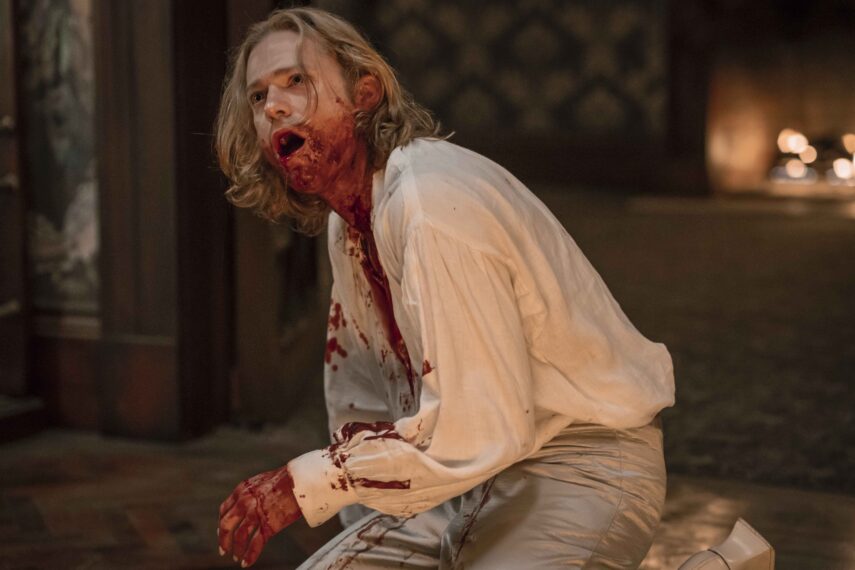
Alfonso Bresciani/AMC
Daniel didn’t buy that Lestat was truly dead, poking holes in Louis’s story that in turn showed updated footage of the same memories. Like in the book, Lestat did survive this bloody ordeal. Hiding in a coffin that locked from the inside that Louis threw in the trash, Lestat was able to survive on rats at the dump, and Claudia was none the wiser. Daniel figured this out, but what he didn’t clock ended up being the biggest finale plot twist.
While Daniel was pressing Louis for the full truth and nothing but, Rashid (Assad Zaman) grew increasingly defensive. His patience grew thin enough to reveal his true identity: Armand, a vampire hundreds of years older than Lestat. The finale ended with Louis calling Armand “the love of his life.” Here, Interview With the Vampire creator and showrunner Rolin Jones explains the finale ending and gives a glimpse into Season 2, currently in early production.
Given the Rashid/Armand reveal, has this entire interview basically been an Armand-approved narrative? I get a sense that Louis is walking on eggshells and may feel like he has to tell this version of the story.
Rolin Jones: You have to look at it as if [Seasons 1 and 2 are] the entire book. You are almost halfway through a movie right now. And if we’re doing our job right, some of it you will know and some of it you’ll have already enjoyed. And there will be some things that were built-in revelations. We want to tell a complete story.
This idea of memory and reliability, it’s not lies necessarily, but it’s the things that time and trauma (and on the flip side wonderful times) that kind of mix up everybody’s idea of what happened to you. You can get with a friend 20 years later and say, “I remember we did that” and they look at you and say, “I don’t think that’s how that night went.” That sort of thing plays very, very strongly in the thing that we’re building. And it comes from the book, too.
There are parts of the book where Louis knows things very, very well, and then there are parts of the book where he goes, “I can’t tell you about this” or “I could barely know, I don’t remember.” And because of that there’s wildly different versions of this story starting with book two, book three, book four, you’re like, “Oh, it was already in there.” And so yeah, we’re playing that. I think you just have to wait, but like with everything in this show, we’re trying to make something that is nuanced. There’s not anybody who’s controlling anybody, but there are influences everywhere, mostly from Louis himself. He has a lot to learn in the next episodes, Louis.
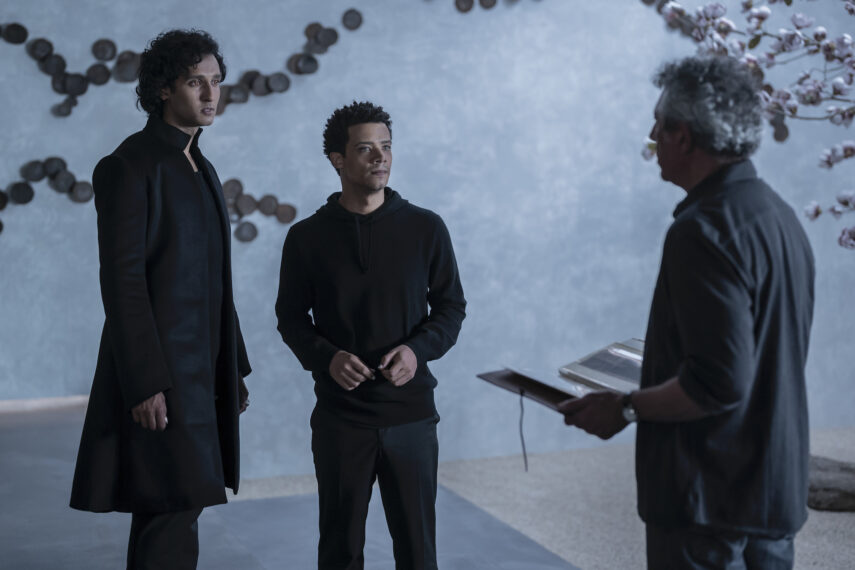
Alfonso Bresciani/AMC
I don’t know how to explain it, but the show feels like a book while I’m watching it. Is that something you were cognizant of while you were making it or maybe watching it back? And if so, how did you accomplish that, do you think?
If there’s anything literary, it’s that Anne Rice has this really, really — just in vast sections of the book — extraordinary prose. It’s heightened. I felt like that was part of the genetic makeup of it. There’s a heightened language that is written and actors who know how to perform that heightened language as if it was everyday conversation.
I think that’s probably the thing that might feel like a good book. It’s not navel gazing or documentation trying to get exactly how everybody talked in 1910 in New Orleans. There’s a poetic architecture to it that everybody’s kind of reeling in. And that comes from Anne. We try to weave in as much of her prose and try to make it dialogue. Doing that meant we had to set a sort of table so that all the language didn’t feel like suddenly we threw in an Anne Rice line. I think that was sort of woven in there.
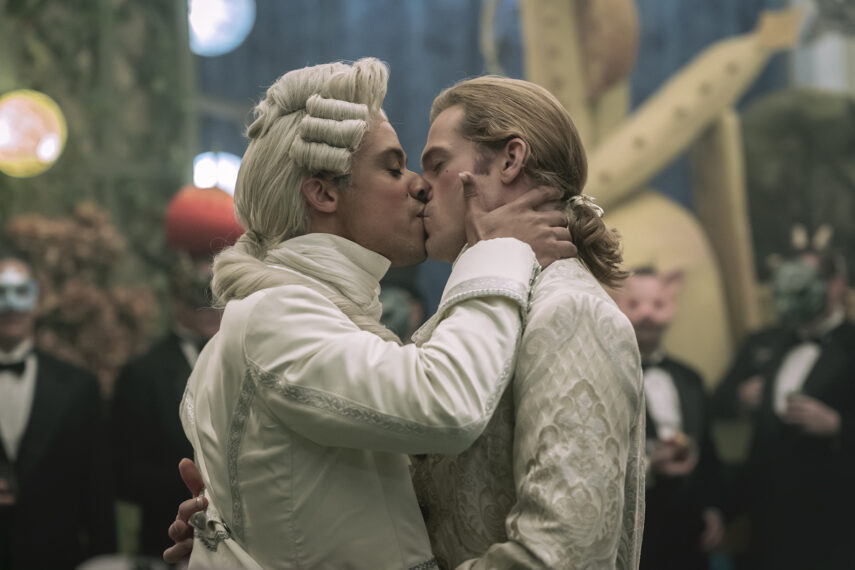
AMC
There were Anne Rice fans who critiqued the show before it came out because of your casting decisions and setting changes. How did you feel about those comments?
I gotta be honest, I literally am not on any social media, because I know it’ll be a rabbit hole for me. I knew it would be out there. I knew when I took the job, and that’s cool, because I was probably never gonna please those people. They have the books, they can read them over and over again. They’re lovely, beautiful books. The movie’s there. They can watch it anytime. It’s great. Any work of art’s gonna find the people that it was made for, and sorry I disappointed or didn’t do what they wanted to do, but there’s a lot of lovely work that was done. We just tried to imagine what Rice would do if she were given the task in 2022 to make a TV show out of it.
Not everybody knows how difficult it is to do to take things that are really, really successful in novel writing and transfer it into dramatic serialized episodic television. The building blocks work wildly differently. There’s this anticipation that this thing is coming out that hasn’t been out since what, 1994? There are people who are excited, and it’s part of life that you’re not going to please everybody. You probably have made a pretty generic thing if everybody likes it. But I have total empathy for them.
I feel like some don’t fully understand how hard it is to make a TV show in general. Whether it’s a completely original idea or not, making it look seamless is not easy. So if you’ve made a good show, that’s a huge feat.
We have lot of people who took it on in a personal way as well. We’re having a workshop for Season 2 for The Théâtre des Vampires here in London with this local theater company that I’ve been crazy about for 15 years, and we’re also sitting around with a bunch of people who worked on Season 1 too. The level of personal interest and everybody taking a piece of it and making it their own — it really doesn’t happen in TV shows all the time where everybody finds some part of themselves that makes it one of those extra special projects for everybody, like a real family effort.
I do feel very fortunate. A lot of things had to click into place. AMC spent a lot of money and gave me a lot of creative support on it. Top down, very lucky, very fortunate.
Interview With the Vampire, Season 1 Streaming Now, AMC+
